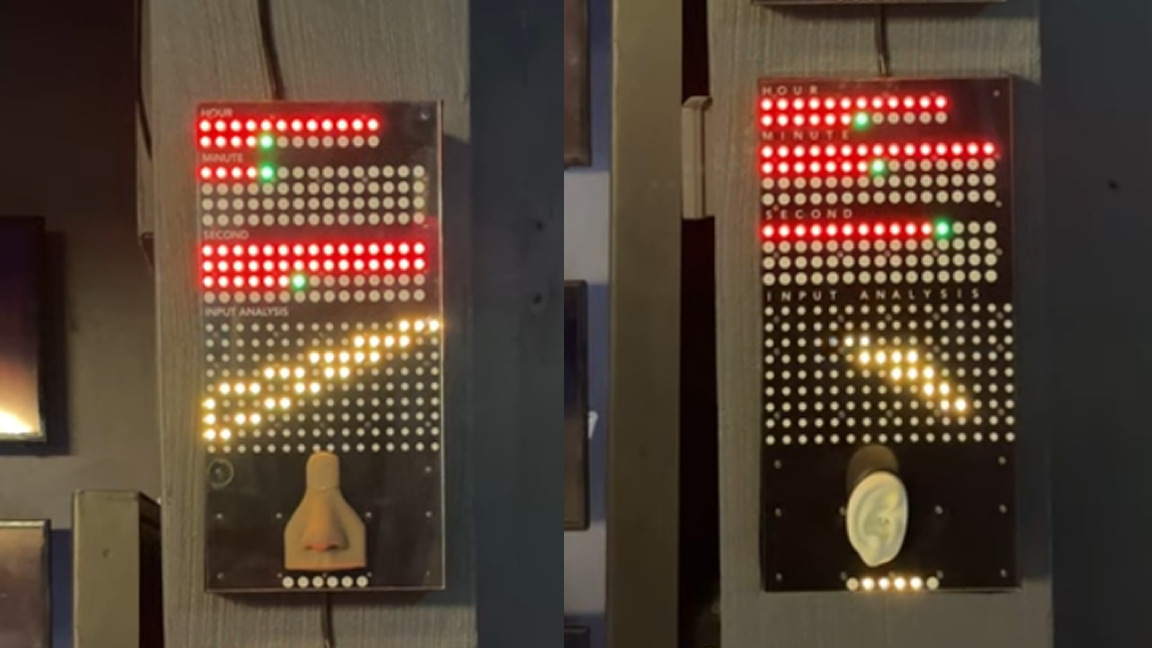This Raspberry Pi AI clock listens and smells for the current time

Raspberry Pi clocks have been around for a while but the maker community sure seems to have a way of making them increasingly more complex. Today we have an example of such a project—in fact, it's so complex that it's hardly functional. Maker and developer Max Björverud is using a Raspberry Pi to power his clocks that use AI to estimate the current time based on smell and sound.
The clocks work independently from one another, each using a particular input device (one being a microphone, the other being a multichannel gas sensor). The clocks are programmed to improve over time, but in real-time you get an estimation of the time based on the data it's accumulated so far. The clocks output to matrix panels with rows to indicate the hour, minute, and second.
The bottom matrix panel is programmed to output shapes based on recent metrics from the data it collects. As far as accuracy goes, Björverud insisted in the original project thread that uncertainty is at the heart of the purpose behind the project. No matter how correct, the clock will always insist upon the time. Björverud claims his project helps raise awareness of this aspect of artificial intelligence.
Each clock is using a Raspberry Pi, but they aren't using the same model. The ear is using a Pi 3B+ while the nose is running on a Raspberry Pi 4 B. The ear clock is using a microphone to listen for audio output while the nose clock relies on a multichannel gas sensor. As it collects more information over time, the data can be honed in to be more accurate.
The artificial intelligence side of the project is aided by an open-source Python library called Scikit-learn. This free library has plenty of tools adapted for machine learning projects. The matrix panel graphics are operated using an open-source C++ tool called openFrameworks.
If you want to get a closer look at this Raspberry Pi project in action, you can check out the original thread shared to Reddit or see the demo video on YouTube. If you want to get to know the mastermind behind these crazy cool clocks, you can check out our interview with him over at our Raspberry Pi-themed podcast, The Pi Cast.
Get Tom's Hardware's best news and in-depth reviews, straight to your inbox.

Ash Hill is a contributing writer for Tom's Hardware with a wealth of experience in the hobby electronics, 3D printing and PCs. She manages the Pi projects of the month and much of our daily Raspberry Pi reporting while also finding the best coupons and deals on all tech.
-
Geef It will be able to recognize when someone lets a SBD (Silent But Deadly) in the elevator.Reply
👃:sarcastic:
